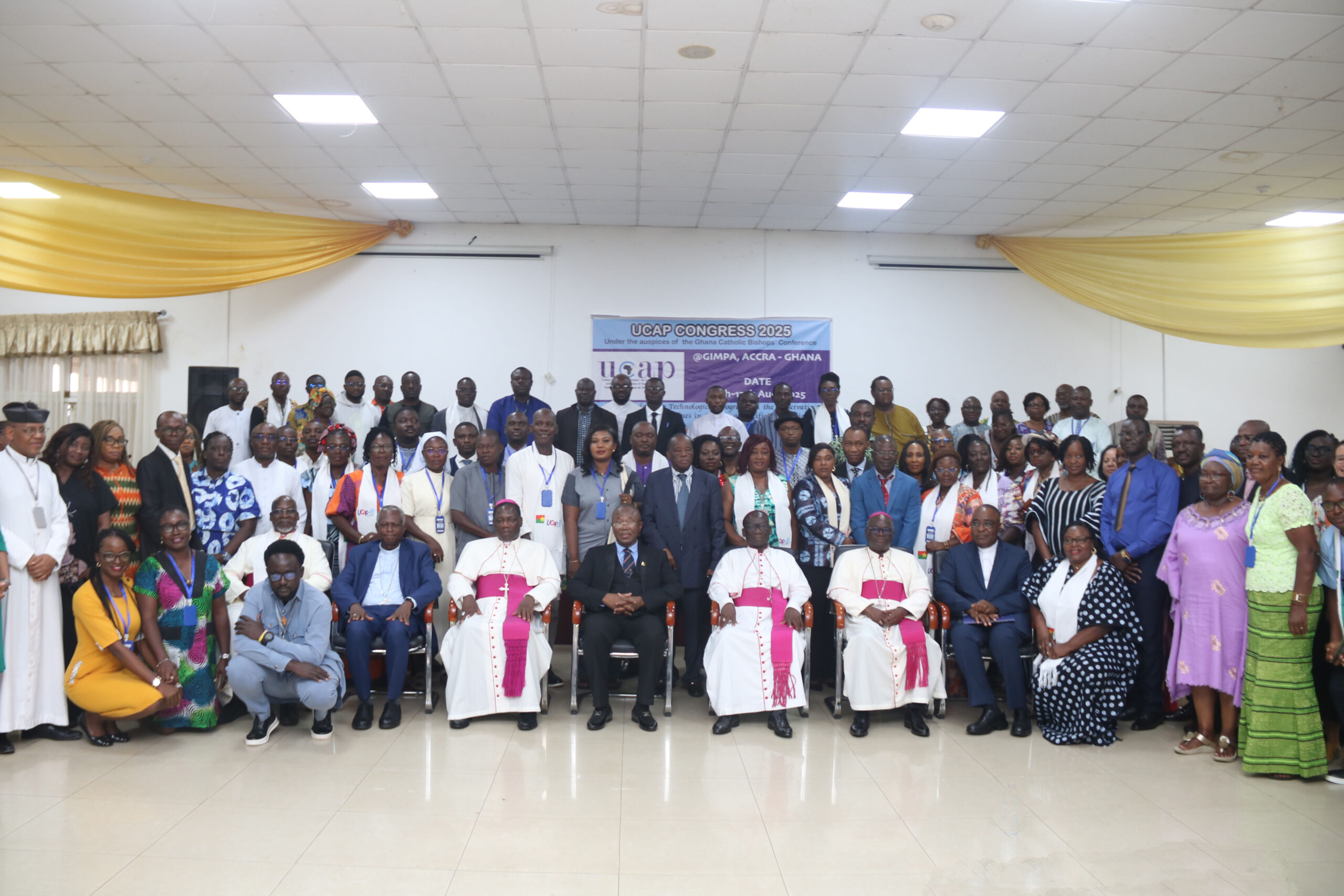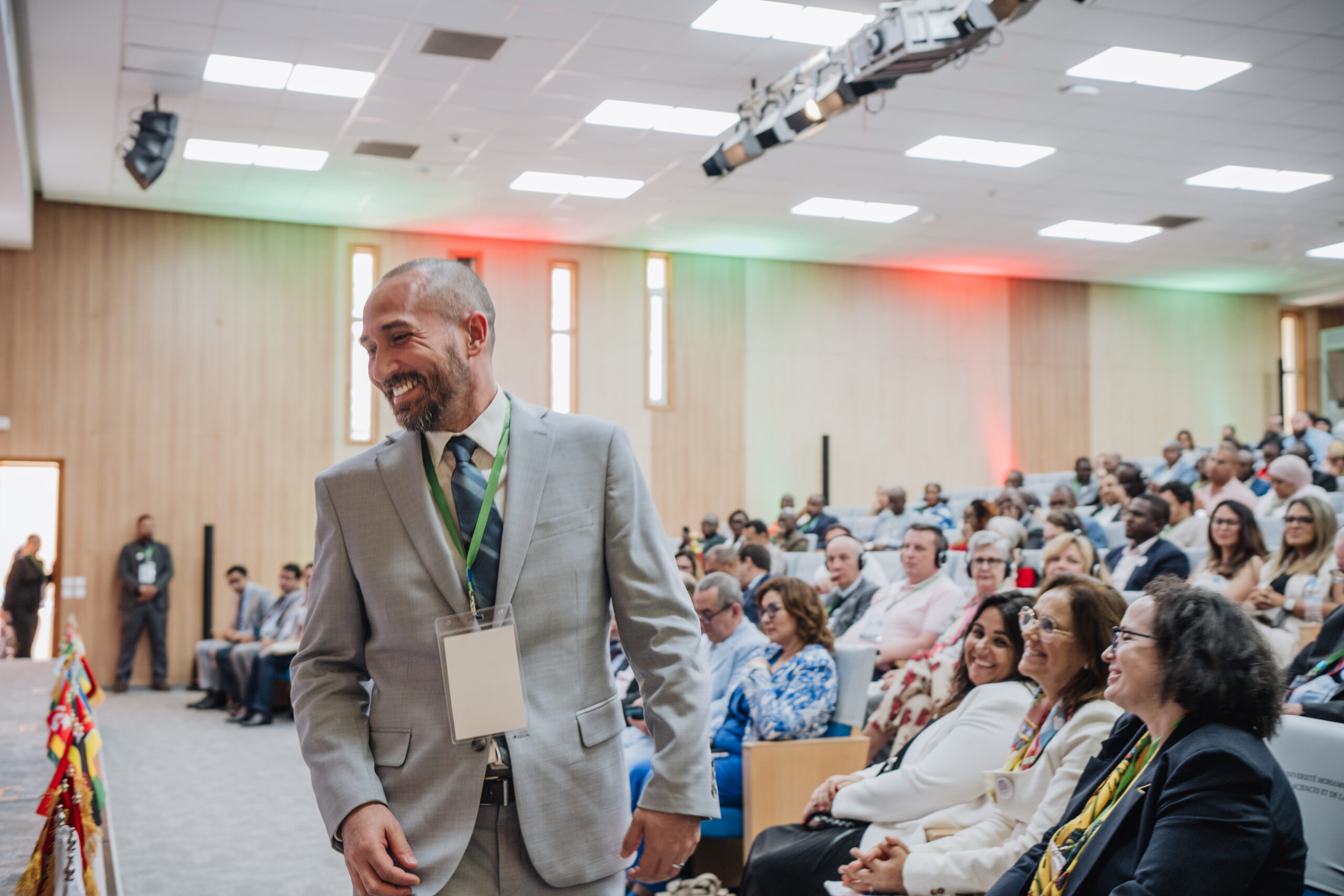By Etienne Mainimo Mengnjo
The African Catholic Union of the Press (UCAP) has called on African media institutions to establish ethical guidelines for the use of AI in journalism, ensuring that technology serves the human person and the common good. This is one among the recommendations taken at the end of the UCAP Triennial Continental Congress, which took place in Accra, Ghana, from August 10 to 17.

The congress brought together more than 100 Catholic journalists, lecturers, content creators, and other media practitioners from over 20 countries, including 19 African nations. The congress focused on the theme, “Balancing Technological Progress and the Preservation of Human Values in the Age of Artificial Intelligence (AI).”
The gathering provided a platform for participants to deliberate on the ethical challenges and opportunities presented by AI, as well as to explore ways in which Catholic journalists can safeguard human dignity and values while embracing technological innovation.
Regarding the ethical use of AI in media, UCAP urged African media institutions to establish guidelines ensuring that technology serves the human person and the common good, and to reject any form of manipulation, misinformation, or disinformation.
On safeguarding human dignity in the age of AI, UCAP affirmed the primacy of human dignity over technological advancement and committed Catholic journalists in Africa to promote media practices that uphold truth, integrity, and authentic human relationships.
UCAP also committed to enhancing the professional formation of media practitioners in Africa by integrating modules on AI, digital literacy, and Catholic social teaching into training programs, as well as media education.
Additionally, UCAP recommended collaborating with Episcopal Conferences, universities, policymakers, and civil society to develop frameworks that balance technological innovation with moral responsibility.
Among other resolutions, UCAP members pledged to actively foster a culture of peace, reconciliation, and fraternity by giving voice to the voiceless and promoting communication that safeguards truth, freedom, justice, and solidarity.
To governments, the Union called for regulations on the use of AI to prevent the erosion of truth, manipulation of consciences, and invasion of privacy. They also urged investments in digital infrastructure and ethical frameworks that protect human dignity while supporting innovation.
To media organizations, they recommended adopting editorial policies that ensure AI tools do not replace human judgment, conscience, or responsibility. They should also establish fact-checking mechanisms and promote transparency in the use of AI-generated content.
To the Church in Africa, the Union recommended that the Church continue to guide and support Catholic communicators in discerning the ethical challenges posed by AI. They should encourage dioceses and Catholic institutions to invest in media education that forms journalists in truth, responsibility, and service to the common good.


